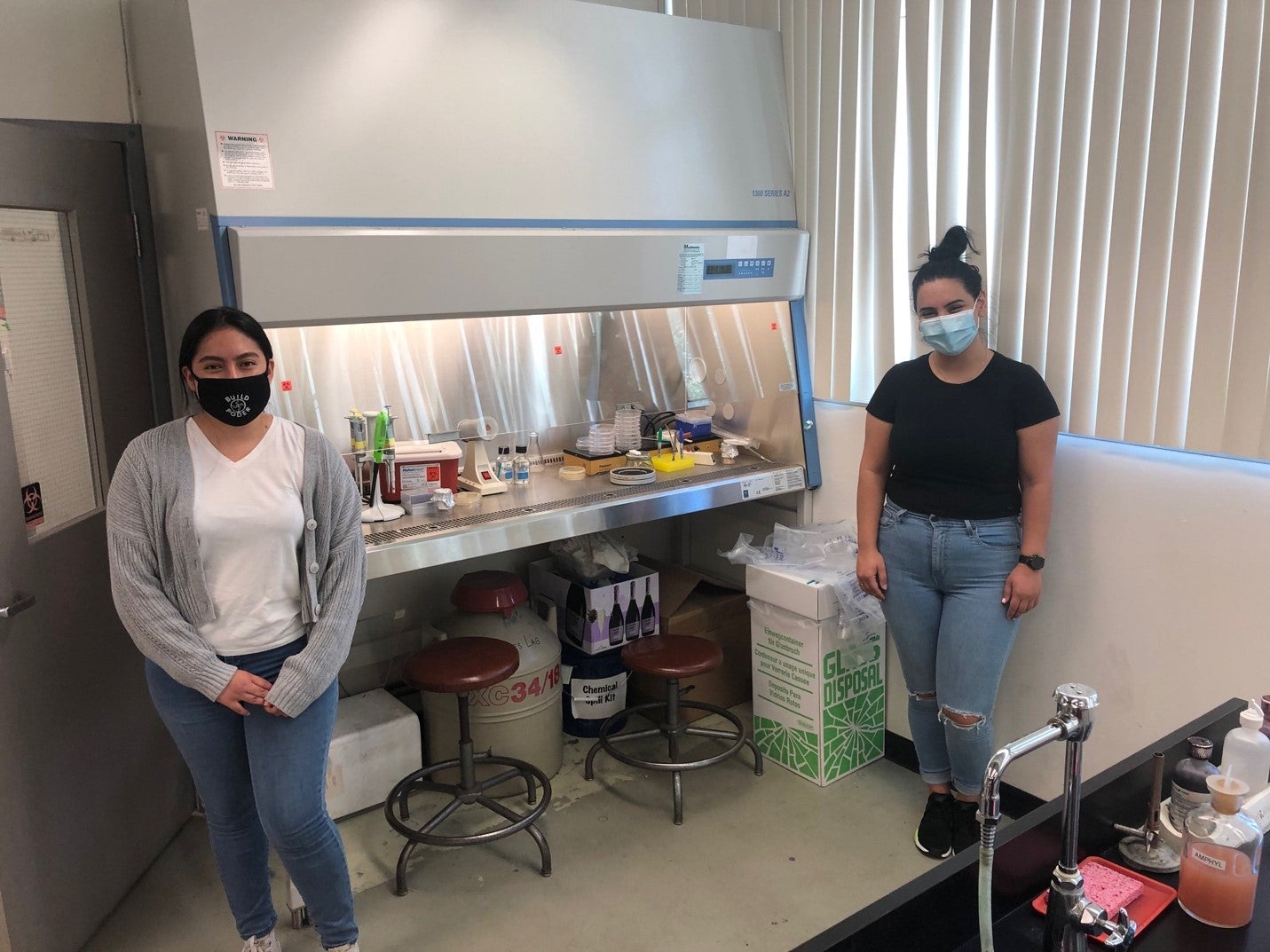Research and Creative Activities
Research, scholarship, and creative activities (RSCA) continue to be an essential component of CSUN’s mission. In support of that, CSUN is re-opening research labs and design space as health and safety allow. The first priority is opening the research labs supporting instructional activity, followed by opening labs supporting funded research and activities, and as public health guidance allows, opening research labs and creative activity studios that enable our faculty to continue their work in support of the campus’ primary instructional, research and artistic mission.
Accessing Your Research Space
Research labs, studio spaces, and essential field research projects are continuing to be reviewed and approved according to our phased approach to RSCA adaptation and restart. To be considered for repopulation, most projects will need:- Priority research access request form
- Verification of COVID-19 Lab Coordinator training
- Research assessment plan or field research plan
- Lab checklist (for on-campus labs)
 Researcher Spotlight: Yolanda Vasquez-Salgado
Researcher Spotlight: Yolanda Vasquez-Salgado Along with Dr. Shu-Sha Angie Guan and their team at the CSUN Health Equity Research and Education (HERE) Center, Dr. Vasquez-Salgado is examining the role of social class, cultural mismatch and resilience on underrepresented students’ health and academic outcomes during the transition to college, pre- and post-COVID-19. They have met with and sought advice from several stakeholders, including the CSUN IRB, Environmental Health & Safety, and the Institute of Salivary Bioscience at UC Irvine to devise a safe and scientifically rigorous method to continue their research, which includes the collection of saliva samples, during COVID-19 restrictions. Their quick thinking and collaboration with other university partners has allowed them to continue an NIH-funded program of research they are very passionate about.
Research-Related Travel
Due to the current CSU travel restrictions in place until June 30, 2021, the University President's approval is required for all travel, including all mileage and parking only trips. If your research project involves ANY travel – whether local, domestic, or international – your first step should be to complete an Essential Travel Application at least two weeks prior to arranging local and domestic travel and 4-8 weeks prior to arranging international travel.Sustaining Your Funding
Funding agencies have shown considerable flexibility with proposal submission deadlines as well as allowable spending, project extensions, and required reports for current awards. If you have an upcoming proposal or an already-funded project and you’d like to see what options are available, the most important thing you can do is reach out to the program officer at your funding agency and begin that conversation. CSUN is maintaining updated guidance from many of our agency partners here. If you need help navigating the new rules or just have questions and want to talk to someone about your proposal or funded project, please reach out anytime to your assigned analyst. (Analyst assignments are based on your college, department, or chartered center or institute.)

Students Alonda Rosas (BUILD PODER) and Alina Simonyan carry out a research project in Dr. David Bermudes’ Biology lab.
Research with Human or Animal Subjects
The safety of research participants and study personnel is our highest priority. All human subjects research that involves in-person (face-to-face) procedures is currently suspended, even if it was previously approved by the CSUN IRB. However, accelerated review is possible for modification requests to help your study pivot to remote data collection that replaces face-to-face contact. We strongly encourage all student and faculty researchers beginning new projects in the fall – especially students planning to graduate in Spring 2021 – to focus on secondary data analysis or remote data collection procedures. Please contact the IRB at irb@csun.edu if you have questions or would like to discuss potential changes to your study.For animal research and classroom projects, we have similarly prioritized the safety of the lab animals under our care. Basic care of all animals is able to continue regardless of campus closure, as the vivarium supervisor is designated "essential personnel" and permitted to be on campus in all scenarios. The vivarium lab safety assessments have been completed, and faculty investigators can resume their projects located in the vivarium. Please note that the vivarium has posted both a per-room occupancy for each module and an overall maximum occupancy for the entire vivarium suite; both limits must be observed at all times.
Prioritizing Health
Approved lab spaces have been prepared with enhanced cleaning and sanitizing procedures, new room use and hygiene protocols, altered seating arrangements for physical distancing, and directional signage. In addition, specific safety protocols for each lab’s research activities have been developed and implemented, including the determination of new maximum occupancy limits. All project personnel must observe the posted limits and adhere to the approved lab plan.Additionally, all study personnel – including students, staff, and faculty – must take the Qualtrics screening survey and be cleared each day before coming to campus or reporting to an off-site research location. Students and faculty who are in high-risk groups especially vulnerable to COVID-19 should not participate in on-campus activities at this time. Anyone who does participate should understand and acknowledge the risk of infection and commit to shared responsibility for protecting themselves and others by following protocols and public health guidelines.
Please visit the CSUN Research and Sponsored Programs website for more information on any of these topics.

